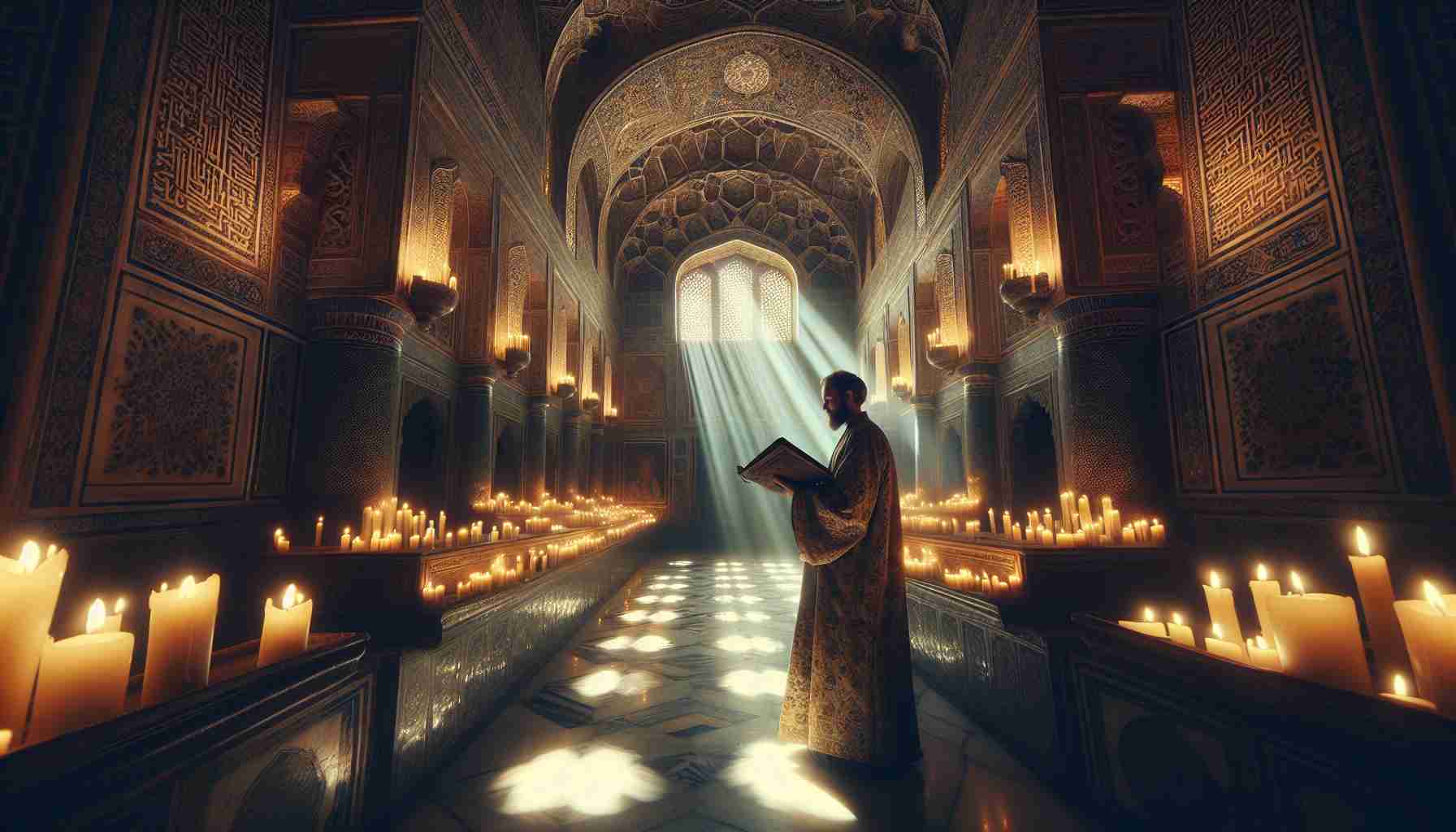

The candlelight flickered in the vaulted shadows of the Lateran Palace, casting long silhouettes across its marbled halls. Outside, Rome waited—crushed beneath dread, its people whispering of the world’s end. It was the waning hours of December 31st, 999. The moon stood sentinel above St. John Lateran, white and cold, offering no comfort to those huddled in the darkened corners of the Eternal City.
Inside, Pope Sylvester II knelt before his crucifix. Though his robes bore the ornate patterns of Peter’s successor, his fingers, ink-stained from a lifetime of study, trembled slightly. The air tasted of fire and prayer, of incense and fear. Bells tolled midnight in halting sequence, as if the metal itself hesitated.
Voices from the square pressed against the walls like storm tide. Some pleaded in Latin hymns. Others screamed. All eyes turned skyward, scanning for angels or apocalypse. Was this the terror the Apostle warned of? “So then, let us not sleep, as others do, but let us keep awake and be sober,” Sylvester whispered from 1 Thessalonians. He rose, slowly, the weight of eternity on his shoulders.
He had not asked for this hour. Born Gerbert of Aurillac, a peasant son of the Frankish hills, he had scaled the heights of learning in the monastic halls of Catalonia. There in the libraries of Ripoll, he’d found the lost numerals of the East, tracing Arabic logic across sheaves preserved by Moors and monks alike. He had translated Al-Khwarizmi’s theorems beside the Psalms, never seeing conflict between science and faith, only clearer revelation.
Now he stood not before dusty tomes but the trembling heart of Christendom, watching shadows leap across the Lateran’s apse mosaics—golden images of the Lamb and the Cross glimmering like stars.
A knock. Then another. The chamberlain entered, pale. “Your Holiness… they beg for a sign.”
Sylvester moved past him into the basilica nave, where torchlight licked the marble pillars dressed in ancient porphyry. Hundreds waited in stunned silence, eyes reflecting flame. Cardinals and bishops knelt beside cobblers, widows, and soldiers. In the gallery, Roman nobles clutched their jewels; near the altar, peasants held nothing but one another.
Raising his hand, Sylvester spoke—not with thunder, but like rain after drought.
“Brothers, sisters. Has not the Lord told us, through His servant Paul, that the day of the Lord will come like a thief in the night? And yet he counseled, not fear—but wakefulness. Faith. Truth.”
He walked down the aisle, robes brushing stone, stopping beside a weeping mother.
“Look not to the stars for your end. Look to Christ, who was, and is, and is to come, no matter the count of our calendars.”
A murmur rose like morning wind. The pope lifted something from his sleeve: a carved tablet etched with strange symbols—Indian numbers, smooth as river pebbles. Few yet understood them. But he spoke with the clarity of a mathematician and a man of God.
“The turning of numbers is not the turning of ages,” he declared. “The thousandth year means nothing to the One who made time itself.”
An aged deacon stifled a sob. Young acolytes stared, wide-eyed. The basilica pulsed with candlelight, and with it, something else—curiosity displacing terror.
“Are these the end-times?” a voice called.
To which Sylvester replied, “If so, let us be found faithful—not fearful. And if not, then let us build again, wiser than before.”
He urged them not to flee from the night, but to gather in praise. Slowly, the choir began—“Te Deum laudamus”—and the people joined. Dawn crept over the eastern walls of the city, gilding the scene with brilliance. And when the world did not end, when the sun rose undisturbed over the Seven Hills, laughter broke like spring.
No winged beasts, no Judgment trumpet—only the soft cry of market carts rolling anew, as Rome exhaled after a night of breathless supplication.
Sylvester returned to his chambers not triumphant, but quietly resolved. He had led them through terror not with prophecy, but peace. Through doubt, not with signs, but understanding. In flawed numerals, he had found the language of order; in Scripture, the heart of truth. And from both, he had steeled a city against madness.
By the year’s turning, the pope continued holy reforms, restoring ecclesiastical discipline, enriching the Latin schools, and urging unity where schism threatened. He died quietly three years later—not as a prophet, but as a shepherd who knew the value of both mind and soul.
Some whispered even after his death that he trafficked in sorcery, that such wisdom must have come from devils beneath Rome. Legends fluttered like cinders: of speaking heads, of mechanical marvels hidden in his private rooms. But beneath the Lateran, where centuries of popes slept the dust’s embrace, Sylvester’s tomb bore no boast.
Only carved scripture: “Let us not sleep… but remain awake.”
The thousand years of night had passed. Faith, not fear, had endured.